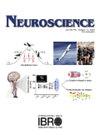Effect of COVID-19 pandemic on hospital admission rates of patients with malnutrition and/or neuromuscular complications after bariatric surgery
IF 1.2
4区 医学
Q4 CLINICAL NEUROLOGY
引用次数: 0
Abstract
Objectives: To assess and compare the admission rates of medical complications (MC) after Bariatric and metabolic surgery (BMS) over a period of 6 years prior to and during the pandemic. Bariatric and metabolic surgery could be associated with MC, including malnutrition and neuromuscular complications (NC). Methods: Retrospective study of all patients admitted to Hamad General Hospital, Qatar, with post-BMS MC before (n=12, January 2014-December 2019) and during the pandemic (n=36, January 2020-31 May 2021). We assessed 17 nutrients, nerve conduction/electromyography diagnosed NC, and we explored whether patients had clustering of gastrointestinal symptoms, barium meal findings, excess weight loss percentage (EWL%), or non-compliance with post-BMS clinic visits and multivitamin supplements. Results: The sample comprised 95.8% sleeve gastrectomies, mean age was 26.62 years, and 54.2% were women. Admissions increased from pre-pandemic 0.29 per 100 BMS to 11.04 during the pandemic (p<0.0001), despite no significant differences in patients’ demographic/surgical profiles, nutrient deficiencies, or MC characteristics. Across the sample, the most frequent neuropathies were mixed sensory/motor/axonal; albumin and total protein deficiencies were observed in 54.2% and 29.2% of patients, respectively (no pre-pandemic/pandemic differences). Most frequent micronutrient and trace element deficiencies were potassium, vitamin D, and zinc (no pre-pandemic/pandemic differences). Admitted patients had high non-compliance with multivitamins supplementation (87.5%), high post-BMS nausea/vomiting (66.7%, 62.6%, respectively), high EWL% (mean=74.19±27.84%), no post-BMS outpatient follow up (75% during pre-pandemic, 88.9% during pandemic) (no pre-pandemic/pandemic differences for all), and gastroesophageal reflux (higher during the pandemic, p=0.016). Conclusion: Despite the reduced number of BMS during the pandemic, hospital admissions of MC significantly increased.COVID-19大流行对减肥手术后营养不良和/或神经肌肉并发症患者住院率的影响
目的:评估和比较疫情前和疫情期间6年内减肥和代谢手术(BMS)后并发症(MC)的入院率。减肥和代谢手术可能与MC有关,包括营养不良和神经肌肉并发症(NC)。方法:对卡塔尔哈马德综合医院在疫情前(2014年1月至2019年12月,n=12)和疫情期间(2021年1月30日至5月31日,n=36)入住BMS后MC的所有患者进行回顾性研究。我们评估了17种营养物质,神经传导/肌电图诊断为NC,并探讨了患者是否有胃肠道症状、钡餐检查结果、超重率(EWL%),或不遵守BMS后的临床就诊和多种维生素补充剂。结果:样本包括95.8%的袖状胃切除术,平均年龄26.62岁,54.2%为女性。尽管患者的人口统计学/外科特征、营养缺乏或MC特征没有显著差异,但入院人数从疫情前的0.29/100 BMS增加到疫情期间的11.04(p<0.0001)。在整个样本中,最常见的神经病变是感觉/运动/轴突混合;在54.2%和29.2%的患者中分别观察到白蛋白和总蛋白缺乏(在大流行前/大流行前没有差异)。最常见的微量营养素和微量元素缺乏是钾、维生素D和锌(在大流行前/大流行前没有差异)。入院患者对补充多种维生素的依从性很高(87.5%),BMS后恶心/呕吐很高(分别为66.7%、62.6%),EWL%很高(平均值=74.19±27.84%),没有BMS后门诊随访(疫情前75%,疫情期间88.9%)(所有患者在疫情前/疫情期间没有差异),和胃食管反流(疫情期间较高,p=0.016)。结论:尽管疫情期间BMS数量减少,但MC的住院人数显著增加。
本文章由计算机程序翻译,如有差异,请以英文原文为准。
求助全文
约1分钟内获得全文
求助全文
来源期刊

Neurosciences
医学-临床神经学
CiteScore
1.40
自引率
0.00%
发文量
54
审稿时长
4.5 months
期刊介绍:
Neurosciences is an open access, peer-reviewed, quarterly publication. Authors are invited to submit for publication articles reporting original work related to the nervous system, e.g., neurology, neurophysiology, neuroradiology, neurosurgery, neurorehabilitation, neurooncology, neuropsychiatry, and neurogenetics, etc. Basic research withclear clinical implications will also be considered. Review articles of current interest and high standard are welcomed for consideration. Prospective workshould not be backdated. There are also sections for Case Reports, Brief Communication, Correspondence, and medical news items. To promote continuous education, training, and learning, we include Clinical Images and MCQ’s. Highlights of international and regional meetings of interest, and specialized supplements will also be considered. All submissions must conform to the Uniform Requirements.
 求助内容:
求助内容: 应助结果提醒方式:
应助结果提醒方式:


